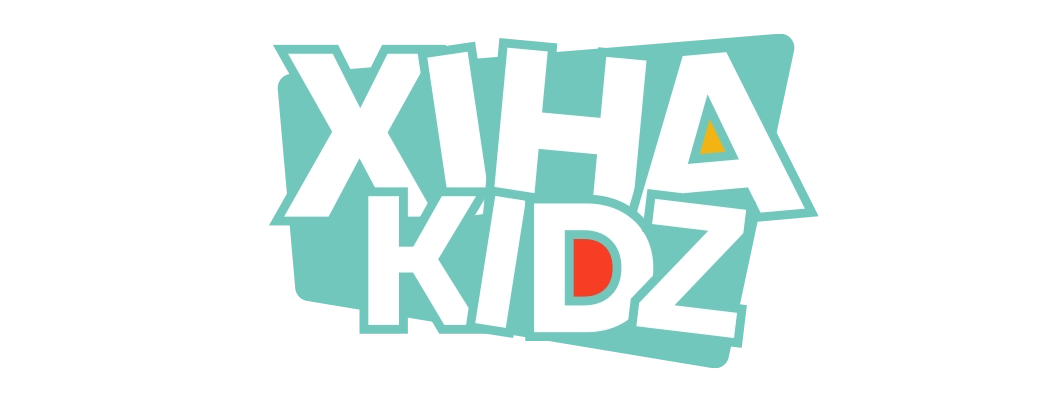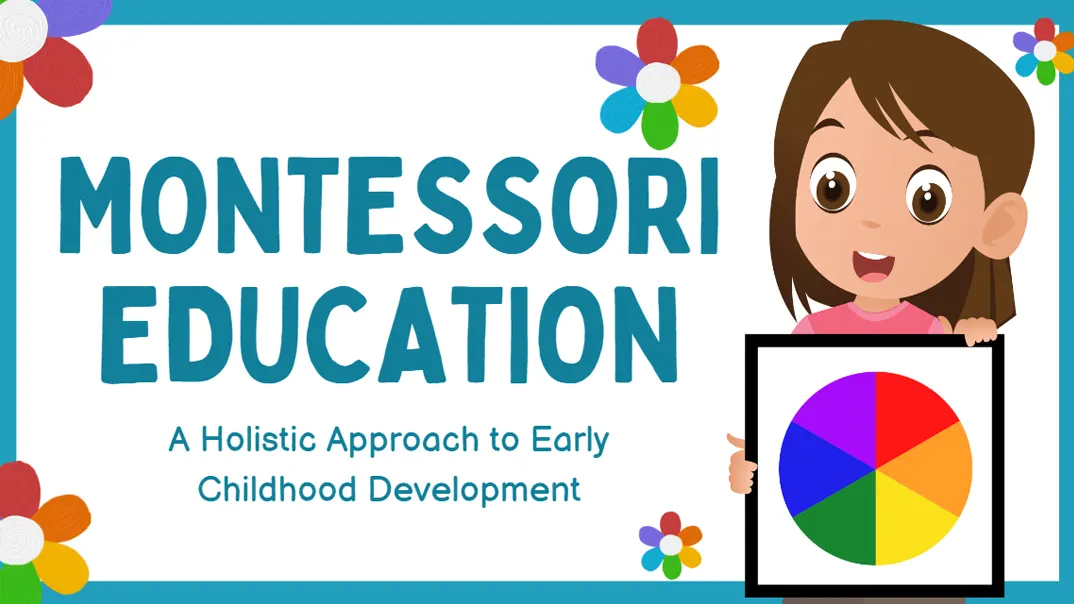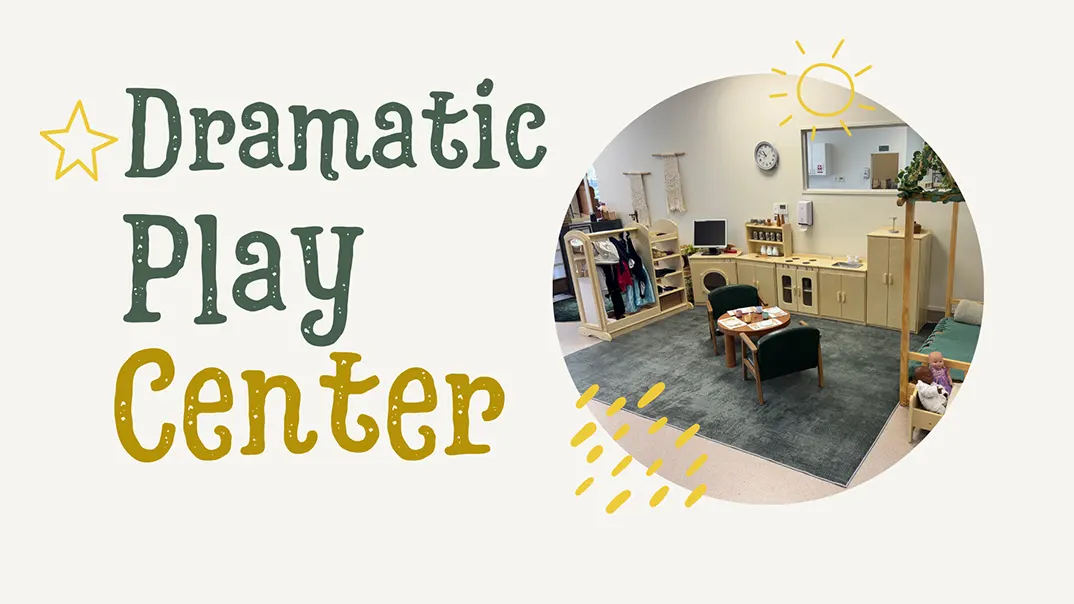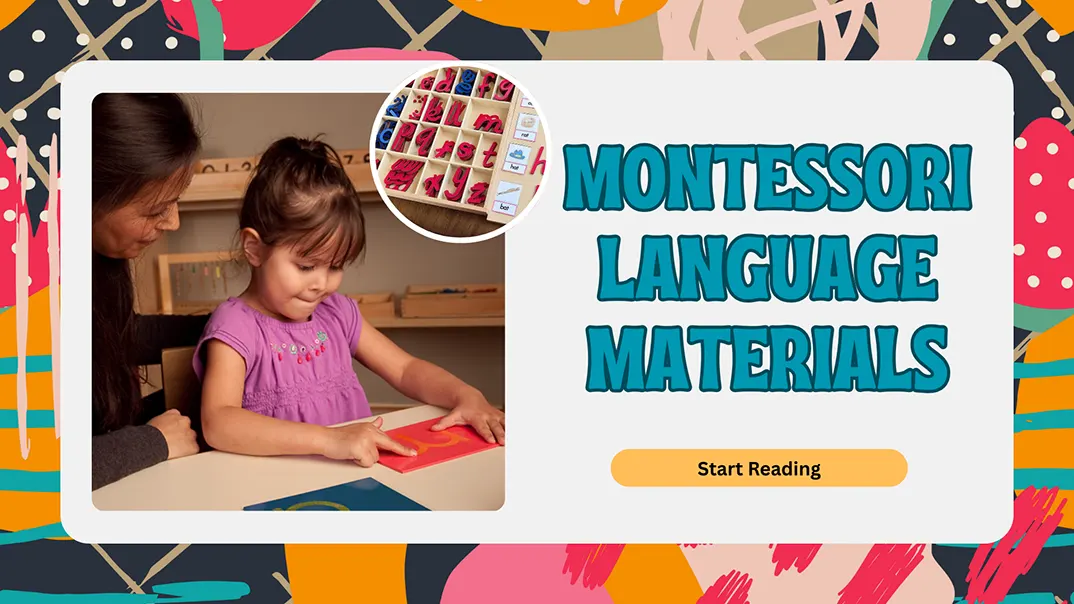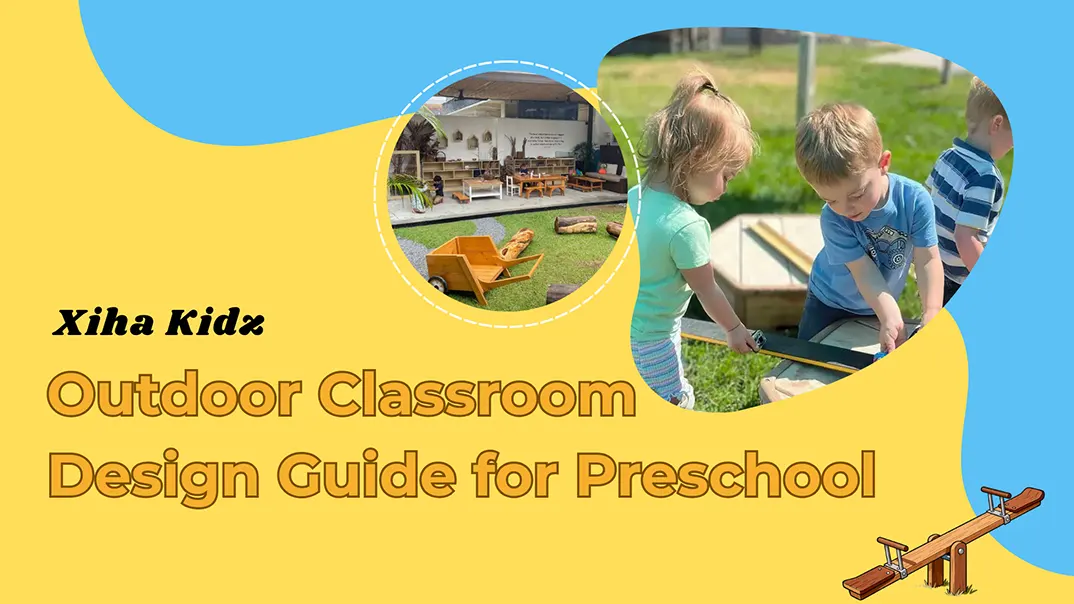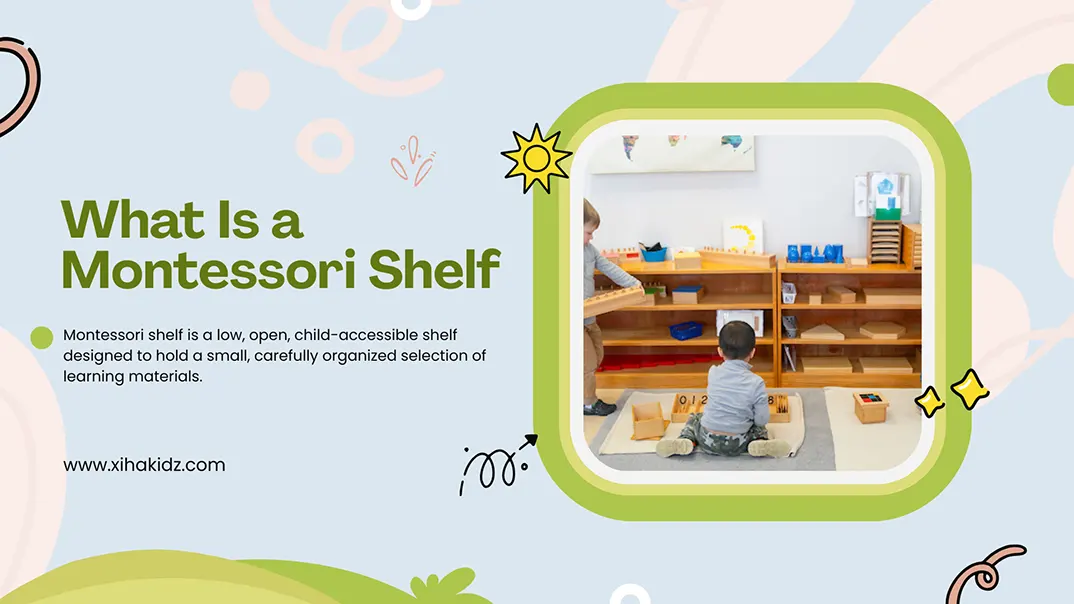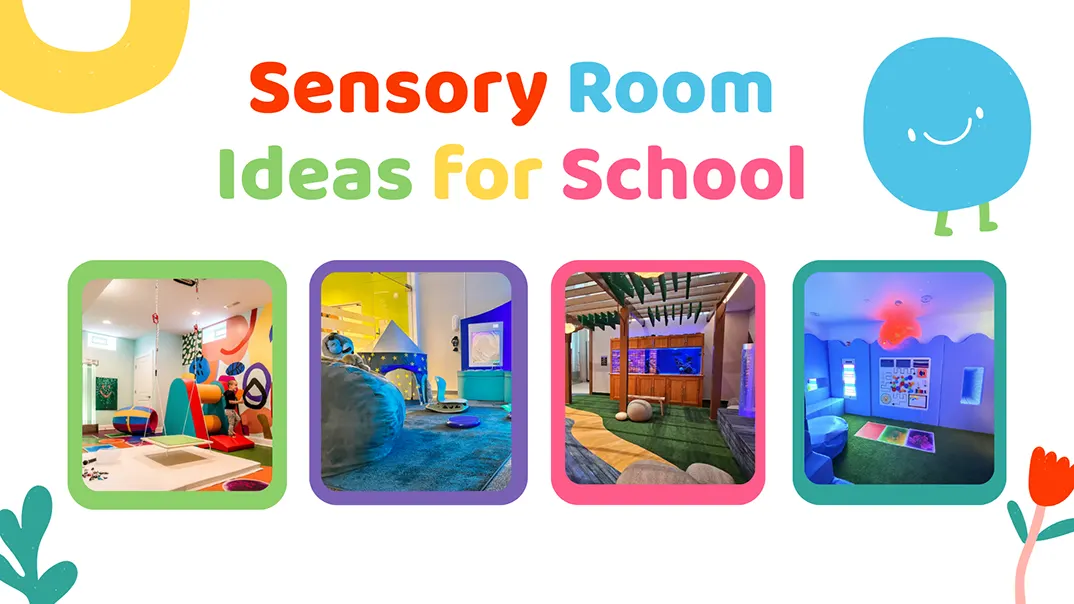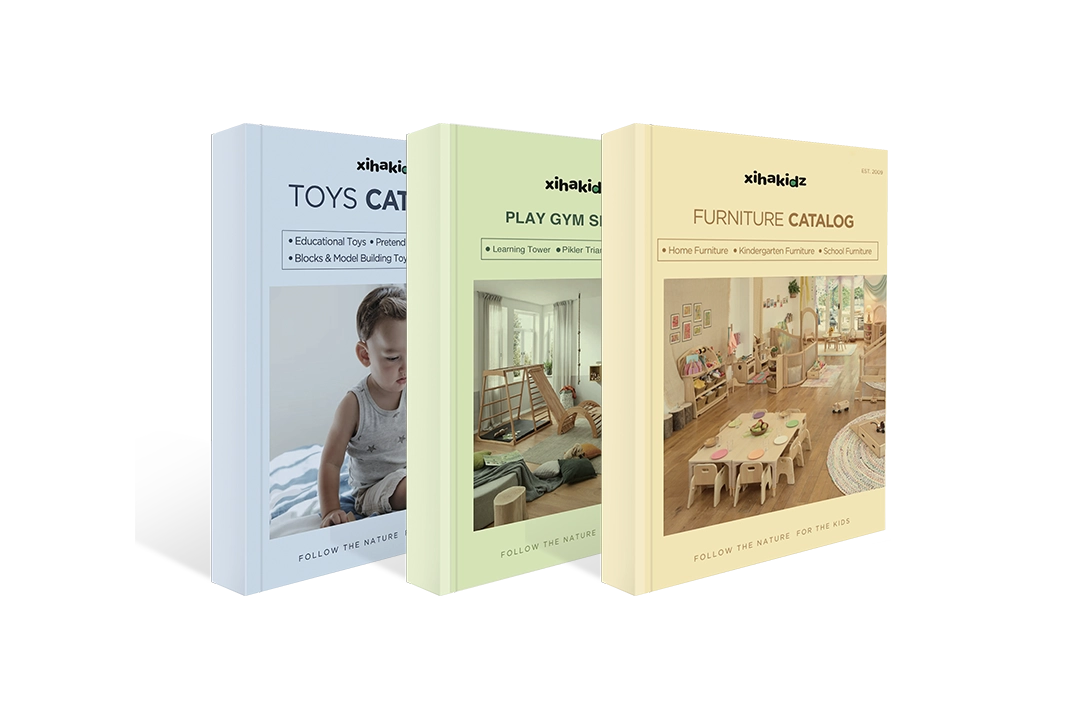Traditional education systems often lack flexibility and fail to adapt to each child’s developmental needs, leaving many disengaged or stressed. Montessori education provides an individualized, child-centered approach that encourages hands-on learning, independence, and social collaboration, ensuring a more engaging learning experience.
The foundation of Montessori education lies in the belief that children are naturally eager to learn and capable of absorbing vast amounts of knowledge when provided with the right tools and environment. This method is particularly popular in Montessori preschool education and is widely implemented globally. Let’s delve deeper into the meaning of Montessori education, its principles, and its profound impact on childhood development.
What Is Montessori Education?
The curriculum of Montessori education is structured around the idea that children learn best through hands-on experiences and self-directed activity. In this Montessori education system, children choose tasks from various educational materials designed to teach specific skills. This promotes a deep, intrinsic love of learning, making education enjoyable rather than a chore.
Transform Your Classroom with Custom Furniture Solutions
What does Montessori education mean? It’s about nurturing the whole child—intellectually, socially, and emotionally. The method allows children to pursue their interests while the teacher (referred to as a guide) provides unobtrusive guidance. This Montessori educational approach develops critical thinking, independence, and problem-solving skills essential for lifelong learning.
The Evolution of Montessori Education
The history of Montessori education dates back to 1907 when Dr. Maria Montessori opened the first “Casa dei Bambini” (Children’s House) in Rome. Initially designed for disadvantaged children, the Montessori method of education quickly gained attention for its success in helping children achieve independence and academic excellence. Over the years, Montessori’s principles expanded from early childhood education into elementary and even secondary education systems.
One of the reasons for the global spread of Montessori education is its adaptability. As research in early childhood education advanced, the Montessori theory of early childhood education was supported by scientific studies, which recognized the importance of a child-led, hands-on learning environment. Today, Montessori in education is recognized and respected globally, with thousands of schools implementing the Montessori approach to early childhood education in over 140 countries.
As the demand for individualized learning grows, the Montessori philosophy of education continues to evolve, influencing modern education systems and alternative educational models.
Understanding Maria Montessori
An Italian physician and educator, Dr. Maria Montessori, revolutionized education by advocating for a child-centered approach. Her medical background played a crucial role in her observations of children’s natural learning behaviors, leading to the development of the Montessori method of education. Her work with children with learning disabilities highlighted the need for a flexible, nurturing learning environment.
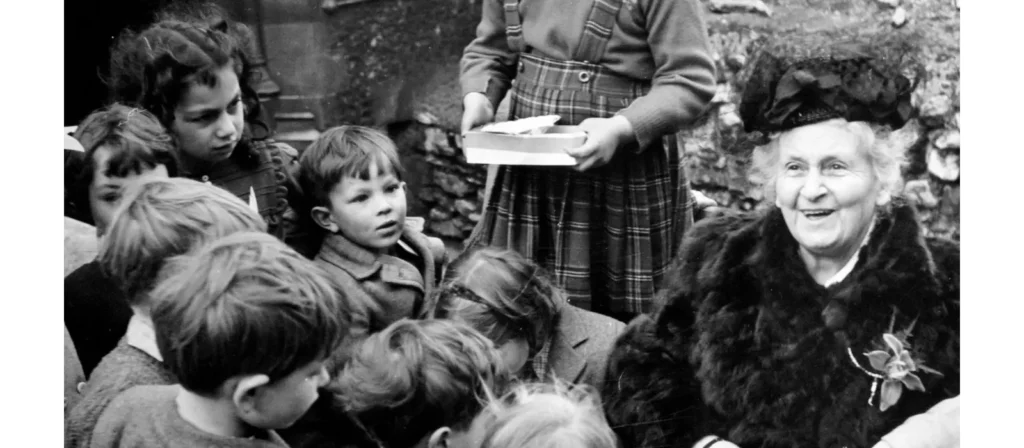
Montessori once said, “Education is a natural process carried out by the child and is not acquired by listening to words but by experiences in the environment,” which reflects her belief in experiential learning. These Maria Montessori education quotes emphasize the importance of empowering children to take control of their learning. Montessori’s work has left an indelible mark on educational theory, influencing how we perceive the development of young minds.
10 Principles of the Montessori Method
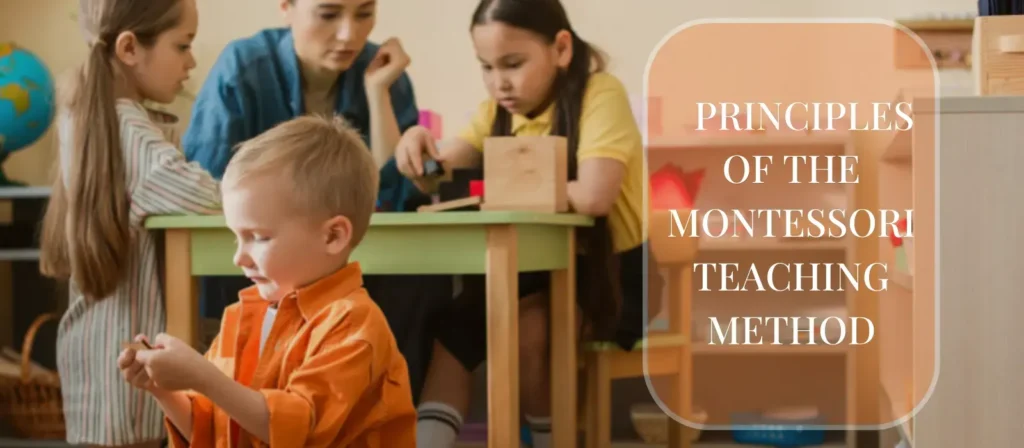
1. Respect for the Child
Respect is the foundation of Montessori education. It means recognizing each child as a unique individual with their own interests, pace of development, and potential. Teachers observe carefully, guide gently, and allow children to make meaningful choices. By treating children with dignity and trust, they build confidence, self-worth, and a sense of mutual respect that supports healthy relationships and emotional growth.
2. Absorbent Mind
Maria Montessori described the young child’s mind as absorbent, meaning that children naturally and effortlessly take in information from their surroundings during their early years. From birth to around six years old, children learn continuously through direct experiences. The Montessori environment is designed to provide rich and purposeful activities that feed this capacity and help them build the foundation for language, culture, movement, and cognitive development.
3. Sensitive Periods
Sensitive periods are specific stages in a child’s early development when they are particularly receptive to learning certain skills or concepts. During these windows, learning happens with ease and joy. Montessori teachers closely observe to identify these moments and provide the right materials and experiences at the right time, allowing children to make the most of their natural potential for growth.
4. Educating the Whole Child
Montessori education aims to nurture every aspect of a child’s development. It focuses not only on intellectual growth but also on emotional, social, physical, and moral development. Children are encouraged to explore practical life skills, social relationships, cultural understanding, and respect for the environment. This holistic approach builds independence, empathy, self-discipline, and a lifelong curiosity about the world.
5. Individualised Learning
Each child learns in a unique way and at their own pace. Montessori education is designed to respond to these differences rather than forcing all children to follow the same path. Lessons are tailored to individual needs, and children are free to explore topics that capture their interest. This personalized approach helps them develop a deeper understanding, sustained focus, and a strong sense of self-motivation.
6. Freedom of Movement and Choice
Freedom is a key principle in Montessori classrooms. Children are encouraged to move, explore, and choose their activities independently. They decide how long to work on a task and how they wish to approach it. This freedom builds decision-making skills, responsibility, and self-control. It also supports physical development and concentration by allowing children to engage with the environment in natural, purposeful ways.
7. Prepared Environment
The Montessori environment is carefully organized to support independent learning. Everything in the classroom is intentionally placed to encourage exploration and discovery. Materials are arranged from simple to complex and are accessible to children without adult help. The space is calm, orderly, and aesthetically pleasing, which promotes focus, curiosity, and a sense of belonging.
8. Intrinsic Motivation
Montessori education encourages children to learn because they find the process itself rewarding, not because of external rewards or punishments. Activities are meaningful, challenging, and engaging, which fosters genuine interest and perseverance. This focus on internal satisfaction helps children develop resilience, creativity, and a lifelong love of learning.
9. Independence
Independence is central to Montessori philosophy. Children are given opportunities to care for themselves, make decisions, and solve problems. They learn to manage tasks such as dressing, cleaning, and organizing their materials. As they gain confidence in their abilities, they develop self-reliance, responsibility, and a strong sense of capability that prepares them for future challenges.
10. Auto-Education (Self-Education)
Dr. Montessori believed that children have an inner drive to educate themselves. When provided with the right environment, materials, and freedom, they naturally seek knowledge and understanding through exploration and repetition. Teachers act as guides, introducing new ideas and then stepping back to let children construct their own understanding. This approach empowers them to become active, self-directed learners.
Transform Your Classroom with Custom Furniture Solutions
The Core Philosophy of Montessori Education
At the heart of Montessori education lies the belief that children are naturally curious and capable of directing their learning. Dr. Montessori proposed that education should not be a passive process where children receive information. Instead, they should actively engage with their surroundings and learn through experience.
In a Montessori classroom, children are encouraged to choose activities, work at their own pace, and develop critical thinking skills through hands-on learning. Teachers act as guides, providing the necessary tools and resources but allowing children to explore topics that interest them.
Key Elements of Montessori Education
- Child-Centered Learning: Unlike traditional education models, where the teacher is the central figure, Montessori education focuses on the child’s interests and pace of learning. Each child is viewed as an individual with unique potential.
- Prepared Environment: The classroom environment is meticulously organized to encourage independence and exploration. Materials are accessible and designed to stimulate the senses and cognitive development.
- Self-Directed Activity: Children can choose their tasks, which empowers them to take responsibility for their learning. This autonomy fosters confidence and a love for learning.
- Mixed Age Groups: Montessori classrooms typically include children of different ages, encouraging peer-to-peer learning and mentoring. Older students often help younger ones, which strengthens social and emotional bonds.
- Learning Through Discovery: Montessori materials are designed to be self-correcting, allowing children to learn from their mistakes and discover the correct answers independently. This process fosters problem-solving skills and critical thinking.
How Montessori Education Differs From Traditional Education
Montessori education stands apart from traditional schooling in several ways, particularly in its approach to teaching and learning. Traditional education follows a more structured, teacher-led curriculum, whereas Montessori emphasizes self-directed, experiential learning. Here are some key differences:
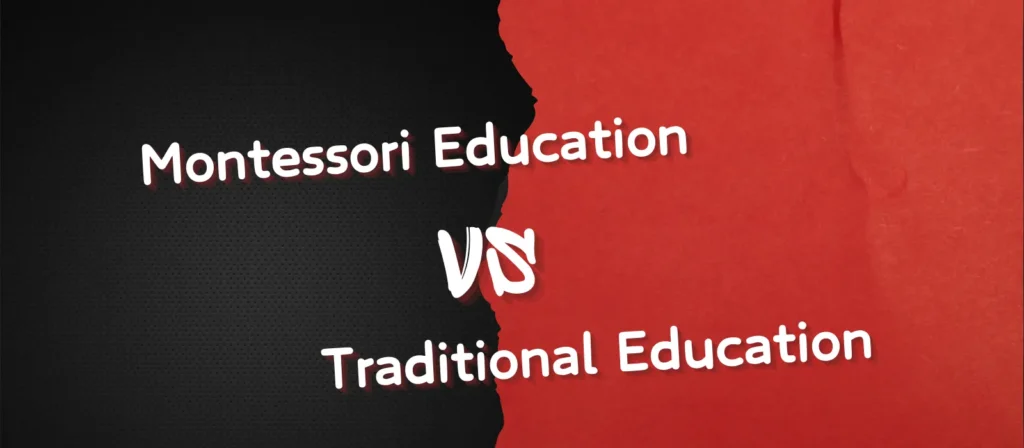
Montessori Education vs Traditional Education
| Aspect | Montessori Education | Traditional Education |
|---|---|---|
| Learning Approach | Child-centered and self-directed. Children choose activities based on their interests and work at their own pace. | Teacher-centered and curriculum-driven. All students follow the same lessons and pace set by the teacher. |
| Role of the Teacher | Acts as a guide and observer who facilitates learning and supports individual growth. | Serves as the primary source of knowledge and directs the learning process through lectures and instructions. |
| Learning Environment | Prepared environment designed to encourage exploration, independence, and hands-on learning. | Standard classroom layout with desks facing the teacher, focusing on listening and note-taking. |
| Curriculum Structure | Flexible and individualized, adapting to each child’s developmental needs and interests. | Fixed and standardized, designed for the average student and delivered in a uniform way. |
| Pace of Learning | Children progress at their own pace, allowing deeper understanding and mastery before moving on. | All students move through material at the same pace regardless of individual readiness. |
| Learning Style | Emphasizes experiential and hands-on learning through materials and real-life tasks. | Focuses primarily on memorization, textbooks, and theoretical lessons. |
| Classroom Dynamics | Mixed-age groups encourage peer learning, collaboration, and leadership development. | Same-age classes emphasize competition and comparison among students. |
| Motivation | Driven by intrinsic motivation and natural curiosity. Rewards come from the joy of learning itself. | Often relies on external rewards such as grades, praise, or fear of failure. |
| Assessment | Continuous observation and qualitative assessment of progress and development. | Periodic testing and grading are the main measures of academic performance. |
| Role of Mistakes | Mistakes are seen as valuable learning opportunities and part of the discovery process. | Mistakes are often discouraged and may be penalized, creating fear of failure. |
| Focus of Education | Educates the whole child, including intellectual, social, emotional, and practical life skills. | Focuses mainly on academic knowledge and standardized subject areas. |
Transform Your Classroom with Custom Furniture Solutions
Benefits of Montessori Education
Montessori education offers numerous benefits to a child’s intellectual, emotional, and social development. These benefits make Montessori a compelling option for parents seeking an alternative to conventional education models.
1. Hands-On Learning Skills Development
One of the greatest benefits of Montessori education is the development of hands-on learning skills. By engaging with tactile materials, children learn through doing, which helps reinforce both academic concepts and practical life skills.
2. Enhancement of Social Skills
In a Montessori education environment, children learn to collaborate and communicate effectively. The mixed-age classroom promotes social development as children interact with peers of different ages, learning empathy and cooperation.
3. Enthusiasm for Learning
Montessori education fosters a genuine enthusiasm for learning. Children are encouraged to pursue topics that interest them, which creates a positive association with learning and promotes lifelong intellectual curiosity.
4. Development of Autonomy
One of the primary goals of Montessori education is to develop a child’s independence. Through daily decision-making and self-directed tasks, children learn to trust their abilities, which builds their confidence and prepares them for future challenges.
5. Meeting Individual Learning Needs
The Montessori educational approach allows for individualized learning, catering to each child’s developmental needs. This personalized approach ensures that children who require additional support or those who excel are given the attention and resources they need to thrive.
Transform Your Classroom with Custom Furniture Solutions
Challenges of Montessori Education
Although Montessori education offers many advantages, it is not without challenges. Understanding these difficulties helps educators, parents, and schools make informed decisions about whether the Montessori method is the right fit for their children and communities. The following are some of the most common challenges associated with Montessori education.
1. High Flexibility in Program Structure
While the Montessori method of education offers great flexibility, it can also present challenges for children who thrive in more structured environments. Children who need more guidance might initially struggle with the open-ended nature of the program.
2. Higher Costs
One of the cons of Montessori education is that it can be more expensive than traditional schooling. The need for specialized materials, trained teachers, and low teacher-student ratios drives up the cost of a Montessori education course.
3. Open Classroom Layout
The open layout of a Montessori classroom encourages independence, but it can also be overwhelming for some children who are used to more traditional, structured settings. The freedom to move and choose activities can be difficult for children who need more direction.
4. Demand for Highly Trained Educators
To be a qualified Montessori teacher, one must undergo specialized training from accredited Montessori organizations in addition to standard teaching credentials. This training involves a deep understanding of child development, lesson presentation, and classroom management aligned with Montessori philosophy. As a result, there is a global shortage of certified Montessori teachers, particularly at the upper elementary and secondary levels.
5. Parental Understanding and Involvement
Montessori education works best when parents understand and support its philosophy. However, some families may struggle to accept certain principles, such as minimal use of grades, child-led learning, or the absence of traditional homework. Misalignment between home and school expectations can create confusion for children and limit the effectiveness of the Montessori approach.

The Montessori Classroom: A Prepared Environment
One of the most distinctive features of Montessori education is the “prepared environment.” This environment is designed with the child’s developmental needs in mind, allowing them to move freely and engage in activities that promote learning and growth.
Characteristics of a Montessori Prepared Environment
- Order and Simplicity: Montessori classrooms are organized and clutter-free. Materials are arranged logically, promoting order and calmness, which helps children focus on learning.
- Natural Materials: Montessori classrooms often use natural, tactile materials such as wood, metal, and cloth, avoiding plastic whenever possible. These materials engage the senses and connect children more meaningfully to their work.
- Accessibility: Everything in the classroom is within the child’s reach, promoting autonomy. Shelves are open, and materials are arranged invitingly and intuitively, encouraging exploration.
Montessori Education Curriculum
The Montessori curriculum is a carefully structured educational framework designed to support the natural development of the child. It focuses on nurturing intellectual, physical, social, and emotional growth through hands-on experiences, purposeful activities, and self-directed exploration. The curriculum is interdisciplinary, holistic, and highly adaptable to the individual needs and interests of each learner.
1. Practical Life
Practical life activities are the foundation of the Montessori curriculum. They include everyday tasks such as pouring, cleaning, buttoning, tying, cooking, and gardening. These activities teach children how to care for themselves, their environment, and others. Through repetition and purposeful movement, children develop fine motor skills, concentration, independence, and a sense of responsibility. Practical life exercises also prepare children for more complex learning by improving coordination and focus.
2. Sensorial
Sensorial activities help children refine their senses and understand the world around them. They explore differences in size, shape, color, texture, sound, smell, and taste through hands-on materials. These activities build the foundation for mathematical thinking, scientific observation, and language development. For example, children learn to classify and compare objects, enhancing their cognitive skills and preparing them for abstract concepts.
3. Language
Language learning in Montessori education is an integrated and natural process. It begins with oral language, storytelling, songs, and conversations, and gradually progresses to writing and reading. Montessori materials such as sandpaper letters and movable alphabet allow children to explore phonetic sounds and word construction. The curriculum also emphasizes vocabulary enrichment, grammar, and creative expression. By learning at their own pace, children develop strong communication skills and a deep love for language.
4. Mathematics
The Montessori approach introduces mathematical concepts through concrete, hands-on materials before moving to abstract thinking. Children use beads, rods, and number cards to understand numbers, quantity, sequencing, and operations. They explore concepts such as addition, subtraction, multiplication, and division in a tangible way. This method builds logical reasoning, problem-solving skills, and confidence in mathematics while nurturing a genuine interest in numerical relationships.
5. Cultural
Cultural studies expand the child’s understanding of the world and their place in it. This area includes geography, history, science, art, music, and world cultures. Montessori materials such as globes, puzzle maps, and timeline charts help children explore continents, countries, ecosystems, and historical events. By learning about diverse cultures and environments, children develop global awareness, empathy, and respect for diversity.
Frequently Asked Questions
- What Age Group is Montessori Education Designed For?
Montessori education is typically offered for children aged 2.5 to 6 in the “Children’s House” (pre-primary) stage. However, Montessori programs are available for infants, toddlers, elementary, and even secondary students. - Does Montessori Education Follow a Set Curriculum?
While Montessori education has core principles and developmental goals, it does not follow a rigid curriculum. Instead, it allows children to explore subjects that interest them at their own pace, guided by the teacher’s observations. - Is Montessori Education Suitable for Children With Special Needs?
Yes, Montessori education can be adapted to support children with various learning needs. Its individualized approach and flexible structure allow teachers to tailor the learning experience to each child’s abilities. - Are Montessori Students Graded or Tested?
In Montessori schools, children are not traditionally graded or tested. Instead, teachers assess progress through ongoing observation and documentation of each child’s development. - Can Montessori Education Prepare Children for Traditional Schooling?
Yes, Montessori education can prepare children for traditional schooling by fostering independence, problem-solving, critical thinking, and a love for learning. - How Can Parents Support Montessori Learning at Home?
Parents can support Montessori principles at home by creating a child-friendly environment, offering open-ended materials, and encouraging independence through daily activities.
Conclusion
The Montessori method of education is a powerful approach that nurtures the whole child—intellectually, socially, and emotionally. Its emphasis on independence, hands-on learning, and self-motivation provides a solid foundation for lifelong learning. While there are pros and cons to Montessori education, the benefits, such as fostering autonomy, developing critical thinking, and meeting individual learning needs, make it a valuable option for many families seeking a more personalized approach to early education.
